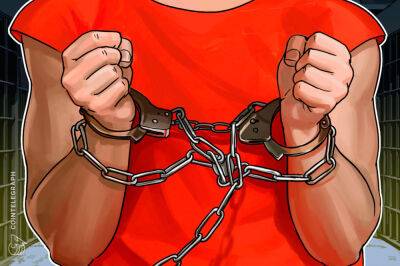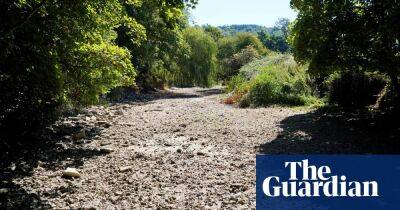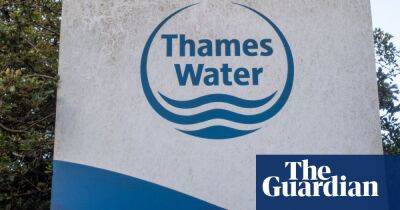The Guardian view on water companies: nationalise a flawed private system
When the water industry was in public hands, it was claimed to work neither for its owner – the state – nor the public. Since being privatised in 1989, water companies have enriched investors and senior executives but failed to adequately invest in infrastructure. Shareholders have been paid £72bn in dividends. The cash came from big debts, with companies borrowing £56bn, and big bills, with prices rising 40%. Private-sector efficiency did not provide better service, but it did allow companies to be milked for cash.
Companies’ pressing concern was to make money rather than think hard about the challenge of the climate emergency. Hence water companies will impose hosepipe bans in record-breaking summer heat despite up to a fifth of water being lost to leaks. Two companies restricting water use – South East Water and Southern Water – have some of the worst environmental records. Thames Water, which will ban lawn watering for its 15 million customers, was fined £20m in 2017 for tipping 1.4bn litres of raw sewage into rivers. Last year the firm was found to have illegally discharged untreated sewage for 735 days.
Such failings are met by water companies with bromides designed to create the illusion of problem-solving. The firms get away with this because the water watchdogs’ bark is worse than their bite. The Environment Agency has said that water company bosses responsible for the worst pollution should be jailed. There is no sign of any chief executive facing criminal charges. In February, the industry regulator Ofwat said Britain’s privatised water companies should link executive pay to performance. This summer, the Thames Water boss, Sarah Bentley, will be handed a total of £700,000 as part of a £3m “golden hello” pay
Read more on theguardian.com









![What Chainlink [LINK] traders should know before cutting losses](https://finance-news.co/storage/thumbs_400/img/2022/9/6/39684_d6s7z.jpg)



![Gauging Filecoin’s [FIL] potential to bounce back from its bear run](https://finance-news.co/storage/thumbs_400/img/2022/9/6/39680_hxcd.jpg)







